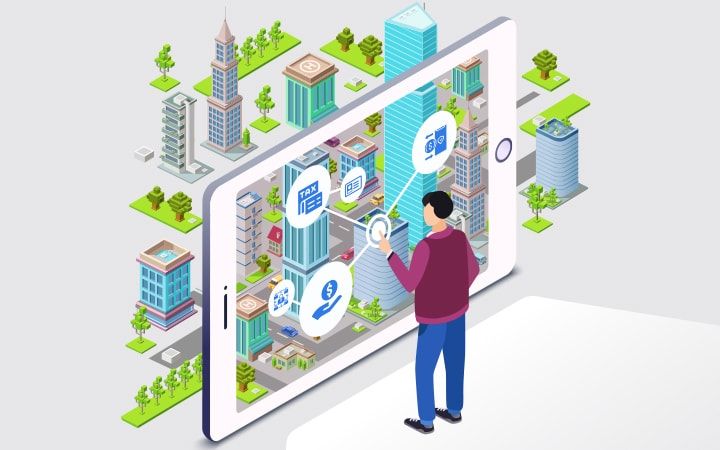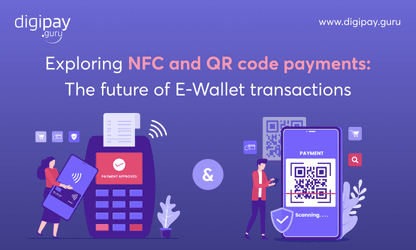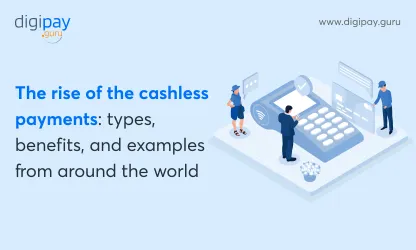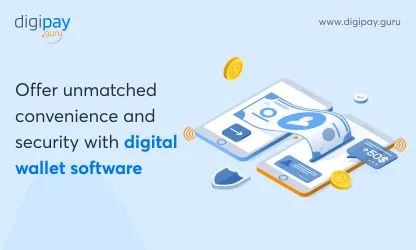The famed British Zoologist Desmond Morris once said something which beautifully sums up the story of current cities across the world. He said, “The city is not a concrete jungle, it is a human zoo”. Today, almost 55% of the world population lives in urban cities and this proportion is all set to go as high as 68% by the year 2050.

This will cause urban areas to face environmental and infrastructural pressures in times to come.
However, we do have a solution in the form of smart cities that can combat these challenges. But, what exactly is the smart city?
What is a smart city?
According to Wikipedia “A smart city is an urban area that uses different types of electronic internet of things(IoT) sensors to collect data and then use insights gained from that data to manage assets, resources and services efficiently, in return using that data to better improve the operations across the city.
This includes data collected from citizens, devices, buildings and assets that is processed and analyzed to monitor and manage traffic and transportation systems, power plants, utilities, water supply networks, waste management, crime detection, information systems, schools, libraries, hospitals, and other community services.
In a nutshell, it’s an attempt to leverage cutting-edge technologies and tools like AI, IoT, digital payments, information & communication technology (ICT), etc. to optimize the city functions and to drive economic growth. This approach also ensures that the quality of life of the citizen is improved.
What is the role of payments in a smart city?
Payments are a significant component of smart cities since it features in the majority of basic services offered to the citizens. All these services form the core of the economic activity which includes business procurement, salaries, consumer spending, and tax collection.
Nowadays, more and more cities are realizing the significance of smart payment technology which plays a crucial role in achieving the vision of a smart city.
Digital payments can play a major role in improving the payments ecosystem across departments with various use cases that can cover multiple C2G (Citizen to Government payments) like electricity, toll & transit, taxi, water, education, tourists places, social services, healthcare, CFC centres, penalties, and public convenience.
Similarly, it can also cover multiple G2C (Government to Citizen) payments like monetary awards, senior citizens benefit, subsidies, and scholarships. These use cases ensure enhanced efficiency and security by reducing the dependency on cash.
However, these do come with its own share of challenges both external and internal that causes hindrance in the large scale adoption. Let’s have a closer look at these challenges.
Challenges associated with digital payments in smart cities
Internal challenges
- The current infrastructure in the government bodies of many developing nations for collections and payments is mainly focused on cheque and cash thus making it inadequately equipped for accepting digital payments.
- Digitizing existing data records is a challenge in itself which is made tougher via siloed businesses and with the limited information sharing across channels, divisions, and departments.
- The absence of a unified strategic vision is causing the payments digitization effort to be less effective.
External challenges
- Low internet connectivity, penetration, and poor infrastructure is adversely affecting the customer experience for online transactions.
- Due to inadequate training of operational staff to manage seamless delivery of payment services and handling customers with special needs have resulted in customers having low trust in digital or technology-based payments.
- On top of that, there’s this usual hesitation that people have when it comes to the change in processes while adopting digital payments.
- The absence of digital payments promotion campaigns and centralized marketing strategy has resulted in inadequate awareness among the citizens which has considerably reduced the rate of adoption of digital payments by the municipal corporations and other such bodies.
Digital payment use cases in smart cities
Many corporations around the world are now looking to establish a sustainable cashless ecosystem. However, as we already discussed there are few major challenges that can prove to be a major roadblock.
These roadblocks can be eliminated by boosting the adoption of digital payments. Below are a few examples in the form of the use cases as to how you can overcome these roadblocks.
Citizen facilitation centre
Many corporations around the world are now taking firm steps towards digitizing their ward offices. Not only this, web-based payments, mobile apps, and POS terminals have been deployed by these corporations to make tax collection cashless. In addition, corporations have also begun to accept payments in the form of AEPS using social security data.
Direct benefits transfer based on Aadhaar
Few municipal corporations in India have begun to transfer various benefits to their citizens, school children, and corporation staff on the basis of their Aadhaar (which is an identification and authentication number in India) loaded on a prepaid card.
These Aadhaar loaded prepaid cards can be used by the school children to buy stationery items, uniforms, shoes, etc. With the help of card, a corporation can ensure that funds transferred are utilized only for the purposes that are permitted by it.
Doorstep solutions
Few of the corporations have started doorstep services for tax collection, where an officer digitally collects the tax at the citizen’s doorsteps at the time and date selected by the citizens themselves. Apart from tax collection, this service can be also be used for other documentation work like issuing birth and death certificates.
One city – one card
One city – one card system is based on the idea in which the citizens can use a prepaid card to make payments across multiple services like government-owned activities, municipal taxes, transport, and many more.
Not only this, but a citizen can also withdraw money from their prepaid card. They can also top-up their prepaid card at any selected bank branch or at various corporation ward offices.
Increasing online payment instruments
Corporations are now looking forward to going beyond the options of debit/credit cards and net banking payments. They are now looking forward towards options like mobile wallets, UPI, EBPP, and IMPS based modern payment methods that can play a major role in boosting digital payments.
They are also bringing their multiple departments on the online platform and integrating it with payment gateways to enable cashless tax collection.
What are the emerging digital payment solutions for smart cities?
The above mentioned are not the only use-cases of digital payments in smart cities. Digital payments have a massive potential that smart cities can leverage from. In fact, there are many emerging digital payment solution and initiatives for smart cities. Let’s have a look at few of those:
Unified payments instrument
- A digital payment mode which is common for making payments at all public transport like local trains, metros, and buses.
- Health card which enables citizens to access free medical benefits without facing any hassles.
- A common instrument that can be leveraged to transfer benefits to women, school children, others for welfare schemes.
Mobile & web-based portals
- POS terminals along with mobile devices can enable transactions at places like markets and retail stores that sell essential farming equipment and seeds.
Value-added services
- Door to door service for the collection of tax, documentation, and delivery of civic services and amenities.
Conclusion
The vision of a smart city is crucial for every nation especially the developing nations that can leverage this cutting-edge concept to streamline their processes and enhance the standard of living for their citizens.
The smart city also unlocks the vast potential of going cashless in regions where cash is still the king. In coming years, we will see the emergence of digital payments in these nations which would be influenced by the government’s action of establishing multiple smart cities.






